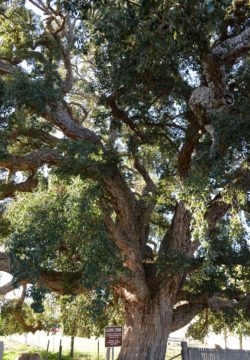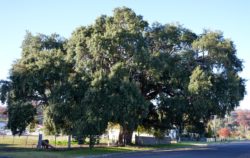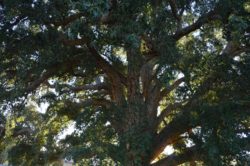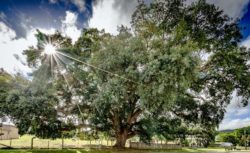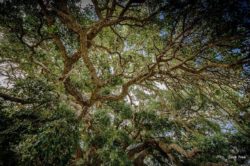Tenterfield Cork Tree
Fortune favours those who see
More in me than just a tree
Look at my cork
And three times walk
Before my girth for all to see
For hundreds of years, people have believed that cork trees, also known as Wishing Trees, had magical powers to bring good luck to those who observed certain rituals when visiting the trees.
Dating back to the time of the Great Plague of London in 1665, people would travel from all over England to visit the trees, walk around them three times, and make a wish.
Tenterfield is home to a giant Cork Tree, which was brought out from England in a jam jar in 1861. It still grows today in Wood Street and is believed to be one of the largest of its kind in Australia. The tree flourishes in the New England climate and enjoys the same lucky reputation of its English counterparts.
While the tree is now located on private property and is fenced off, it can still be conveniently viewed from the street. However, you will have to make your wish from the other side of the fence!
Besides granting wishes, cork trees hold exceptional economic value and are farmed extensively in southern Europe. The bark is used for stoppers in wines, gaskets, hockey pucks, golf balls and floor tiles. The acorn is used for propagation, animal fodder and cooking oils. The leaves are a wonderful, natural fertiliser and the tannins and natural acids in the wood are used in many chemicals and formulations.
Whether you’re making a wish or just standing in awe of its natural beauty, the cork tree is truly magical and well worth a visit.

